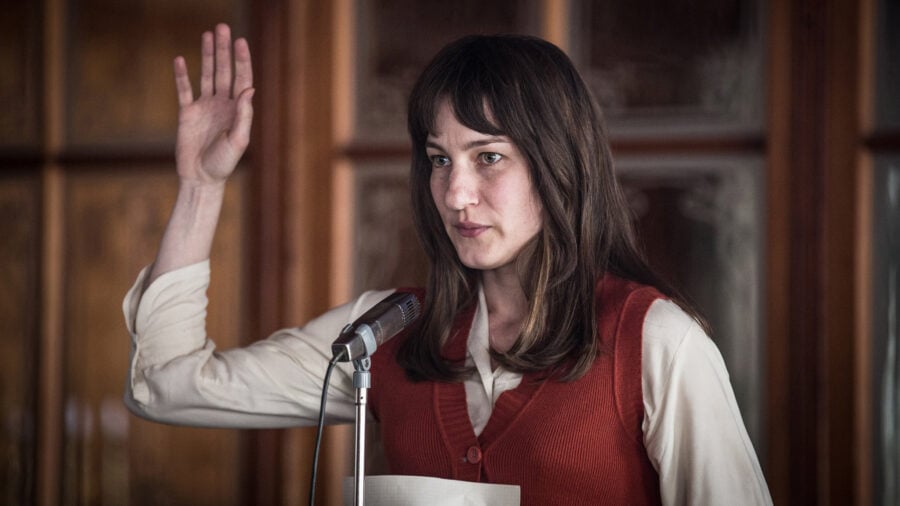With a particularly empowering tenderness and resilience, The Divine Order explores a glossed-over chapter in history wherein Swiss women could not vote until 1971. The hillside Swiss farming village in which Nora Ruckstuhl lives seems picture-perfect. But under the village’s close-knit and idyllic surface, change is stirring. When an emerging sense of autonomy pushes Nora to question her identity beyond being a complacent housewife, she publicly declares herself in favor of women’s suffrage and draws attention from both outspoken opponents and quiet supporters.
As Nora discovers herself—what she does and doesn’t like; what her body looks like; what pleasure feels like—she also uncovers a yearning for better, for more: who is she not just as a spouse and mother, but also as a friend, a member of a greater community, an independent woman?
Synopsis
Nora is a young housewife and mother, living in a quaint little village with her husband and their two sons. The Swiss countryside is untouched by the major social upheavals the movement of 1968 has brought about. Nora’s life is not affected either; she is a quiet person who is liked by everybody – until she starts to publicly fight for women’s suffrage, which the men are due to vote on in a ballot on February 7, 1971.







